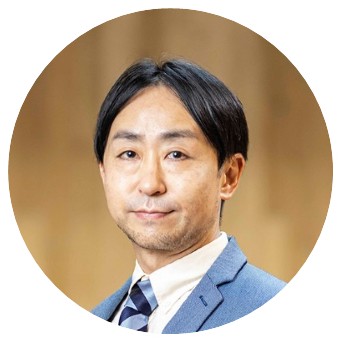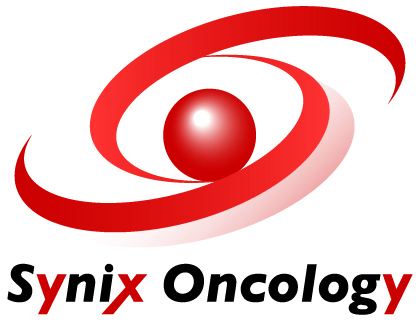研究テーマ:
「がん統計を活用した、諸外国とのデータ比較に基づく日本のがん対策の評価のための研究」
研究代表者:
松田 智大(国立がん研究センターがん対策情報センターがん登録センター)
- サイニクス分担研究テーマ
「がん関連統計の利用制度、手続きの調査と国際比較」 - 第9回調査会
「医療データの利活用と連結への展望」 - 第8回調査会
「希少がんの疫学と臨床研究」 - 第7回調査会
「がん研究におけるビッグデータとデータ連携の展望」
サイニクスの分担研究テーマ
『がん関連統計の利用制度、手続きの調査と国際比較』
第9回調査・勉強会テーマ:「医療データの利活用と連結への展望」
※当日の様子を本ページに掲載予定です。後日あらためてご案内いたします。

講演1
「がんデータ連結はどこまで進むのか―法改正と残された課題」
松田 智大 (国立がん研究センター がん対策研究所国際政策研究部長 / がん対策研究所がん登録センター長)
北欧や豪州、韓国などでは、全国規模でがん関連データベースの統合が進み、臨床研究や政策評価にシームレスに活用されている。日本においても、2025年12月に医療法等の一部改正法が可決され、がん登録事業における被保険者番号収集が可能となり、2027年以降の診断症例では公的データベースとの連結が見込まれている。しかし、診療情報は本来二次利用を想定して記録・管理されておらず、表記の非標準化やデータ品質、照合精度の確保には依然として課題が多い。さらに、個人情報保護規制の強化、提供手続きの煩雑化、技術的ハードル、国際的なデータ共有や民間利用に対する心理的抑制なども想定される。人口減少が進む社会においては、データに基づく政策決定が不可欠であり、国全体が協働し、透明性の高い合意形成を迅速に進めることが、がんデータ利活用促進の前提条件となる。

講演2
「公的医療データベース連結利用における現状と課題―NDB・介護・次世代法の利用経験から見えたもの」
森 由希子 (京都大学医学部附属病院 医療情報企画部 准教授)
近年、公的データベースに関する関連各法の法改正により、NDBを中心とした公的データベース間の連結利用が解禁され、医療・介護を横断するライフコースデータ分析が可能となった。また2023年の次世代医療基盤法改正により、カルテ情報を含む詳細な医療データと公的DBの連結も実現し、すでに利用申請が開始されている。一方で、データ利用申請における事務手続きの複雑さや、各DB間の「ちょっとした」ルールの違いが、利用者を戸惑わせる要因になっている。
本講演では、NDB、介護DB、難病DB、次世代法DBの単独利用に加え、NDBと介護DB、およびNDBと次世代法データの連結申請を実際に行った経験に基づき、利用者目線での実務上の課題を紹介する。こうした障壁がある一方で、連結データがもたらす解析精度の飛躍的向上や、疫学研究・公的統計への応用などへの期待は極めて大きい。今後期待される可能性についても議論したい。

講演3
「小児慢性特定疾病児童等データベースの可能性」
盛一 享德 (国立成育医療研究センター研究所 小児慢性特定疾病情報室長)
小児慢性特定疾病児童等データベース(以下、小慢DB)は、慢性疾患を抱える子どもたちに対する医療費助成等を行う国の支援施策である小児慢性特定疾病対策の柱の一つである疾病研究の推進を目的として構築されている医療情報データベースである。小児慢性特定疾病として国が定めている疾患は、現在800超まで拡大し小児の慢性疾患のほとんどを網羅している。制度の歴史は古く1968年以降順次開始された疾患別の治療研究事業を源流としているが、現在の小慢DBは2015年以降の申請情報を蓄積している。毎年更新となる当該事業の申請の際に提出される医療意見書と呼ばれる医師の診断書の記載事項がデータベース化されている。申請は毎年10万件程度あり、小児疾患レジストリとして見た場合、世界的にも類を見ない規模となっている。
本講演では、小慢DBの特徴や構造を概説し、データの二次解析や他のデータベースとの連携の可能性について紹介する。

講演4
「リアルワールドデータRWD解析2026 ~データ連結に向けた取り組みと課題~」
清水 央子 (東京大学情報基盤センター 協力研究員/MD Concierge & Services株式会社 代表)
医療の世界で「ビッグデータ」、「リアルワールドデータ」などの言葉が一般に話題に上るようになって久しいが、日本でも国民皆保険制度の下レセプト情報を中心にその集積が進んでいる。その一方、カルテなど診療記録は、未だ数十施設単位で集積されたデータベースが散在している状況である。
個々のデータベースの情報の粒度やカバレッジは限定的であるため、各種のリサーチクエスチョンに対して回答を導き出すためには、患者レジストリーを含めたさまざまな情報を連結するモデリング技術が鍵となる。
本講演では、リアルワールドデータRWDの現状と課題を体系的に明らかにするとともに、具体的な解析事例を交えながら、情報を連結するための課題、そのために医療業界として取り組むべきことについての議論を行う。

講演5
「難病医療システムへの提言 : 自立循環型難病医療システムのためのRWD構築」
吉田 いづみ (CSLベーリング株式会社 代表取締役社長)
本プレゼンは、難病患者の医療支援と研究促進を目的に、指定難病患者データベース(難病DB)を中心とした自立循環型医療システムの構築を提言している。厚生労働省が運営する難病DBは、患者情報を一元管理し、医療費助成や研究、政策立案に活用されている。近年、診断技術や疾患認知の向上、制度整備により患者数が増加し、特に好酸球性副鼻腔炎や巨細胞性動脈炎などで顕著である。データベースのオンライン化・統合により、自治体や医療現場の負担軽減、コスト削減が期待される。AI活用やデータ品質管理を進めることで、個別化医療や創薬、社会支援、国際連携など多方面での価値創出が可能となり、患者への医療費助成にも還元される仕組みを目指している。
講演6
「製薬企業向け がん登録と他DBの連結に関する調査(2025年実施)報告」
厚生労働省科学研究費がん政策研究事業 松田班 (サイニクス 木塚)
法改正に伴い、全国がん登録データと他の公的データベースとの連結解析の実現が期待されている。これを受け松田班では、2025年夏期に製薬企業を対象として、全国がん登録データにNDBデータが連結できる場合のがん登録データの利活用に関する期待やニーズを調査し、45社・202名から回答を得た。本講演では、調査を通じて把握することができた具体的な解析・活用ニーズや要望を共有し、今後の連結データ利活用の展望について考察する。
実施日:2026年2月20日
参加者:製薬企業担当者
報告書:後日、本ページに掲載予定
第8回調査・勉強会テーマ:「希少がんの疫学と臨床研究」

講演1
「がん登録と医療データの近未来:日本が目指すデータ活用」
松田 智大 (国立がん研究センター がん対策研究所国際政策研究部長 / がん対策研究所がん登録センター長)
2016年に施行されたがん登録推進法の法改正が近い将来実現する見通しであり、国内で診断・治療された全患者のリストであるがん登録DBに厚生労働省が管理する、NDB、DPCDB、介護DBなど、いわゆる「健康・医療・介護ビッグデータ」を被保険者番号から算出されるID5を介して連結し、活用範囲が劇的に拡大することが期待されている。本講演では、この想定されている法改正の内容について論じる。また、日本は、がん登録や医療データ活用において先進的な韓国や北欧諸国に遅れを取っている現状にある。これらの国々では、例えば、経済状況を加味した上での、がん患者の抗うつ剤の使用状況などといった研究が実現している。こうした先行事例を参考にしつつ、統合データを活用したがん研究や、精緻ながん対策を実施することが重要である。本講演では、個人情報保護の問題にも触れながら、こうした国際的な比較を交え、データ連結が日本のがん医療と政策に与える革新性を示す。

講演2
「日本における希少がん患者の罹患統計と受療動態」
杉山 裕美 (公益財団法人 放射線影響研究所 疫学部 副部長)
第2期がん対策推進計画(2012年)では、希少がんへの対策について初めて言及され、希少がんの分類やその定義について議論が行われた。研究班では、欧州で採用されているRARECAREnetリストを希少がん分類として採用し、住民ベースがん登録に基づく希少がんデータブックにおいて、2011年から2018年までの216種類のがんについての罹患統計を公表した。本報告では、希少がん分類の定義を解説し、希少がん罹患統計を更新する。がん患者の特性(がん種、年齢、居住都道府県)に応じて、がん患者がどのような病院で診断や治療を受けているかについて報告する。

講演3
「Rare Cancer Incidence in East and Southeast Asia」
Patumrat Sripan (Research Institute for Health Sciences, Chiang Mai University, Chiang Mai, Thailand)
There is still lack of understanding of rare cancer, which sometimes causes delays in diagnosis, treatment, and care. The information of rare cancers burden in Southeast Asian (SEA) countries is limited. As part of the RARECAREnet Asia project, this study aimed to estimate first time the incidence of rare cancers in SEA using the population-based cancer registries (PBCR) data. This study used data from national PBCR of Malaysia and two PBCR in northern Thailand including Chiang Mai and Lampang cancer registries. The age-standardized rates (per 100000 person-year) of the rare cancers included in RARECAREnet list that classified to 12 families of rare cancers: head and neck, digestive, thoracic, female genital, male genital and urogenital, skin, sarcomas, neuroendocrine, endocrine organ, pediatric, central nervous system and hematological cancers were estimated. Data quality assessed in terms of proportion of microscopically-verified case was satisfactory (more than 80%) for most of rare cancers. In SEA, cancers defined rare by RARECAREnet were also rare. Cancers defined as rare by RARECAREnet in Europe were also rare in SEA. The ASR of some rare cancers in SEA is greater than that in East Asia, including nasopharyngeal and some pediatric cancers (pancreatoblastoma and odontogenic malignant tumors) in Malaysia, eye and adnexal cancer, and epithelial tumors of the penis in Thailand. In conclusion, although most rare cancers are also rare in SEA, some cancers are not considered rare. However, the incidence of some rare cancers in SEA is higher than that in East Asia. To enhance the understanding, diagnosis, treatment, and care of rare cancers, reliable epidemiological data need to be generated under the RARECAREnet Asia project by working with countries in Asia with high-quality PBCRs.

講演4
「希少がんプラットフォーム研究とアジアへの展開(MASTER KEY Asia)」
溝口 千春 (国立がん研究センター中央病院 国際開発部門研究企画室、臨床研究支援部門研究企画推進部臨床研究支援室(併任) 医員)
患者数が少なく治療開発が困難とされる、希少がんを対象に、研究開発およびゲノム医療を推進する産学共同のレジストリ研究をベースとしたプラットフォーム「MASTER KEYプロジェクト」が2017年5月より開始された。2024年11月現在、国内患者登録数が4000例を突破し、31の臨床試験が実施される中、2021年にアジアへプロジェクトを展開した。希少がんの遺伝子情報、治療の詳細、予後などを含む日本人を含むアジア人のデータを収集することで、国際共同試験の実施、ひいては希少がんの治療開発を目指している。現在はアジアに多いがん種に着目し治療標的となり得る遺伝子異常やウイルスゲノタイピング等のデータ収集を行い、欧米に比してアジアに多いがん種の治療開発を日本や欧米の製薬企業とも連携してアジアで進めることを目指している。本講演ではこれまでの取り組みやデータの活用について紹介する。
実施日:2025年2月21日
参加者:製薬企業担当者73名(28社)
報告書:後日、本ページに掲載予定
講演の様子
※動画には質疑応答の様子は含んでおりません。
第7回調査・勉強会テーマ:「がん研究におけるビッグデータとデータ連携の展望」

講演1
「日本のがん登録データの今後10年のビジョン」
松田 智大 (国立がん研究センター がん対策研究所 国際政策研究部 中央病院 アジア連携推進室 企画戦略局 国際戦略室がん登録センター)
Cancer registries are expected not only to provide reliable cancer statistics, but also to contribute to the digital transformation in cancer medicine in Japan, disease registration, analysis of big data, and standardization of cause-of-death. In addition, the database has a realistic possibility of becoming a complete, detailed, real time, and one-of-a-kind database by linking it with other medical information. In order to realize these expectations, we must once again encourage the parties involved to come together and work together now, 10 years later, as they did when the cancer registry act was enacted in 2013.

講演2
「C-CAT:保険診療で行われるがん遺伝子パネル検査6万件データの利活用」
河野 隆志(国立がん研究センター がんゲノム情報管理センター(C-CAT) センター長)
進行した固形がんの患者さんに対し、保険診療として遺伝子パネル検査を行い、新たな治療法を探すことが可能となっている。また、この検査ではマイクロサテライト不安定性、腫瘍変異負荷(TMB)、生殖細胞系列遺伝子変異についての情報が入手可能である。すでに6万例以上の患者さんが遺伝子パネル検査を受けられ、同意のもと、遺伝子変異と患者さんの診療情報ががんゲノム情報管理センター(C-CAT)に集積されている。例えば、5,000例以上の患者さんが「腫瘍変異負荷が高いがん」と診断され、検査後には免疫チェックポイント阻害薬がもっとも選ばれているなど、まさにC-CATには、日本の患者さんに対してどのような抗がん薬が選ばれているかを示すリアルワールドデータが集まっている。これは、日本の国民皆保険制度を利用した世界に類を見ない貴重な仕組みであり、患者さん、検査企業、医療機関のご協力によって成り立っている。現時点、10の企業を含めた約80のグループ/施設がC-CATのリアルワールドデータを用い、創薬等に向けた研究を進めている。本講演では、C-CATデータを用いることによるがんゲノム医療、研究・開発の促進について紹介したい。
Topic 2 :Real world “big” genomic and clinical data of Japanese advanced solid cancer patients
Dr. Takashi Kohno (Director, Center for Cancer Genomics and Advanced Therapeutics (C-CAT), National Cancer Center)
For solid tumors, irrespective of cancer type, it is possible to conduct cancer gene panel testing as part of insurance-covered medical procedures, including liquid biopsy examinations, upon completion of standard treatments, thus facilitating the exploration of novel therapeutic approaches. The Center for Cancer Genomics and Advanced Therapeutics (C-CAT) has accumulated genetic panel testing results and clinical data from over 60,000 patients. This data represents real-world evidence regarding genetic mutations in advanced cancer patients, along with information on the selection of drugs, treatment efficacy, and adverse events. It plays a pivotal role in understanding the current status of cancer genomic medicine in Japan and identifying unmet needs. In fact, approximately 80 groups/institutions, including 10 pharmaceutical companies, have received approval from the Utilization Review Board and have commenced the utilization of C-CAT data for research, development, and investigation. In this presentation, the current status and prospects of cancer genomic medicine will be introduced with a focus on the utilization of cancer gene panel testing data to enhance patient outcomes as well as to promoter R&D.

講演3
「韓国のがんビッグデータ:課題と挑戦」
Choi Kui son(Graduate Scholl of Cancer Science and Policy, National Cancer Center / Cancer Big Data Center, National Cancer Center, Republic of Korea)
Recently, the value of big data has become increasingly important in cancer research. With IT development, large and diverse data can be processed and analyzed, and various predictive models based on artificial intelligence are being developed.
The National Cancer Center (NCC) Korea developed a Clinical Research Data Warehouse (CRDW) consisting of clinical data, genomic data (e.g., NGS sequencing), and medical image data (e.g., CT, MRI, mammography, pathology). The CRDW contains approximately 500,000 patients and regularly accumulates data for all types of cancer.
In 2022, the Ministry of Health and Welfare launched the “Korea-Clinical Data Utilization Network for Research Excellence (K-CURE)” to build a network for cancer research by building a linked database consisting of clinical data from hospitals and public data from public institutions. The K-CURE project includes (1) developing a cancer clinical data library that standardizes hospital clinical data and (2) developing a cancer public data library that acts as a dataset that manages the entire life cycle of cancer patients. (3) Establish a secure data utilization center for each region to enable a secure environment for data analysis. The K-CURE project plans to establish and operate “Cancer Clinical Libraries” for ten 10 cancer types and “Public Data Libraries,” linked databases from the Korea Central Cancer Registry, National Health Insurance Service (NHIS), Health Insurance Review & Assessment Service (HIRA), and Statistics Korea. This project will establish 1.65 million cancer patients’ clinical data and 4.50 million cancer patients’ public data by 2025, and clinical and public data integration will be promoted.
This presentation will introduce the challenges and measures that the National Cancer Center will take to promote the construction of multi-omics and tumor image data in the future.

講演4
「内閣府BRIDGE事業『医療デジタルツインの発展に資するデジタル医療データバンク構想』」
浜本 隆二(国立がん研究センター研究所医療AI研究開発分野・分野長 内閣府BRIDGE事業「医療デジタルツイン」PM(研究総括))
内閣府より発表された統合イノベーション戦略 2022において、第5期科学技術基本計画の中で提案された「Society 5.0」が我が国の目指すべき社会であり、引き続きその実現に注力することが明文化された。Society 5.0の目指すところは、人工知能(AI)・ビッグデータ・IoT・ロボットなどの新たな技術を取り入れてイノベーションを創出し、一人一人のニーズに合わせる形で社会的課題を解決する新たな社会を構築することである。BRIDGE(研究開発とSociety 5.0との橋渡しプログラム)は本年度から内閣府主導で実施されている事業で、今年6月に我々が提案した施策「医療デジタルツインの発展に資するデジタル医療データバンク構想」がBRIDGE事業として採択されたことが、内閣府より発表された。本BRIDGE事業において我々は、「デジタル医療データバンクの構築」及び「AI駆動型の次世代診療ワークフローの実現に向けた取り組み」という2つの研究テーマを設定しており、国内に先駆ける形でデジタル医療データバンクを構築するとともに、蓄積された膨大な医療デジタルデータを二次利用して、AI技術を活用した医療機器開発や創薬などへ応用するスキームを確立することを目指している。本勉強会ではBRIDGE事業の現状及び今後の展望に関して紹介する。
Topic 4 :About the BRIDGE project “Databank Initiative Contributing to the Development of the Medical Digital Twin” led by the Cabinet Office
Dr. Ryuji Hamamoto(Division of Medical AI Research and Development, National Cancer Center Research Institute)
In the Integrated Innovation Strategy 2022 released by the Cabinet Office, it was clearly stated that “Society 5.0” proposed in the 5th Science and Technology Basic Plan is the society that Japan should aim for and that the government will continue to focus on its realization. The goal of Society 5.0 is to create innovation by incorporating new technologies such as artificial intelligence (AI), big data, IoT, and robotics, and to build a new society that solves social issues in a way that is tailored to the needs of each and every individual.
The BRIDGE (Bridge Program between R&D and Society 5.0) is a project initiated by the Cabinet Office and started this year. In June this year, the Cabinet Office announced that our proposal, “Digital Medical Databank Concept Contributing to the Development of Medical Digital Twin,” had been adopted as a BRIDGE project. In this BRIDGE project, we have set two research themes, “Establishment of a Digital Medical Databank” and “Efforts toward the realization of an AI-driven next-generation medical workflow,” and we will establish a digital medical databank ahead of others in Japan. The aim is to establish a scheme to apply the vast amount of accumulated digital medical data for secondary use in medical device development and drug discovery using AI technology. In this seminar, the current status and future prospects of the BRIDGE project will be introduced.
実施日:2024年2月19日
参加者:製薬企業担当者54名(26社)
報告書:『がん統計を活用した、諸外国とのデータ比較に基づく日本のがん対策の評価のための研究』
